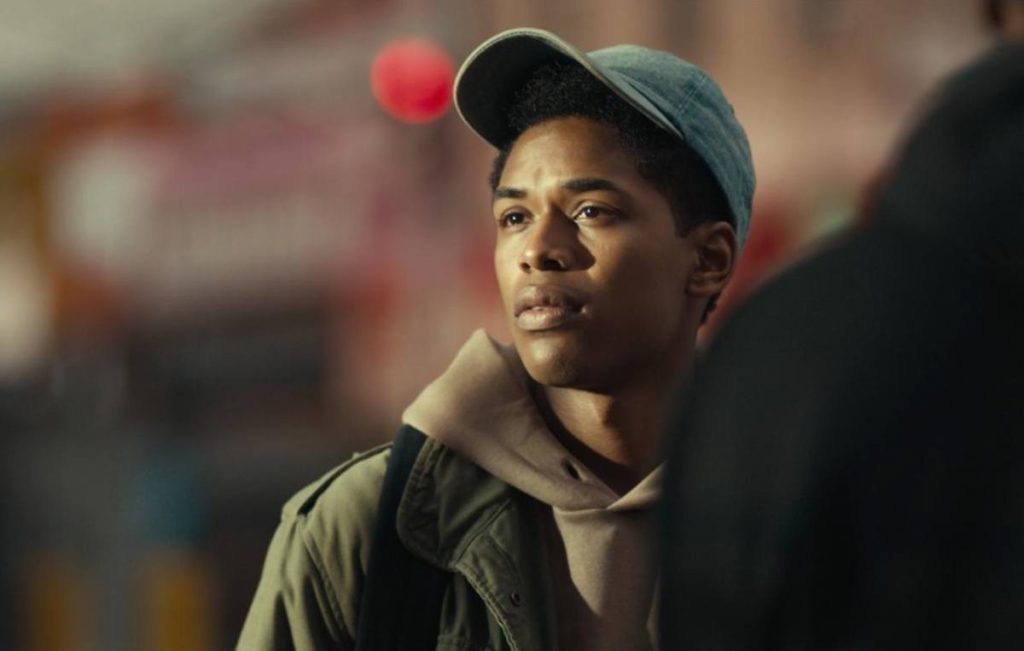Originally screened at Sundance in 2018 and hitting Netflix this weekend, Monster, based on Walter Dean Myers’ award-winning 1999 young adult novel, arrives at a timely moment for stories about the ways the justice system fails people of color. It also hits when audiences are seeing many stories about Black pain, and are starting to tire of them. In a recent article for Wired, Jason Parham writes of the controversial Oscar-winning short about police brutality Two Distant Strangers, and the Amazon series Them, “For these projects, to be Black is to be traumatized, only and always… I wonder: Who do they think it is for? What good is all of this pain doing any of us when we live with it daily?”
Compared to these other recent releases, Monster is far more grounded and tame. It does, however, explore the Black experience through a lens of trauma and injustice. When so many other movies and shows are doing the same, the existence of Monster isn’t enough to further the conversation it’s trying to be part of. It has to prove its necessity. The film does carve out a space in that it’s directed toward younger viewers who can identify with Monster’s 17-year-old protagonist. Stylistically, however, director Anthony Mandler lacks the focus and subtlety necessary to make the film sing.

Kelvin Harrison Jr. plays Steve Harmon, a Harlem teen who dreams of becoming a filmmaker. He goes to a good school, and is close with his parents (Jeffrey Wright and Jennifer Hudson), both college-educated professionals invested in their son’s future. While working on a film project, Steve meets William King (A$AP Rocky). When King and his cousin Bobo (John David Washington) rob a bodega and shoot the owner in the process, Steve is arrested for serving as lookout for the robbery. Steve tells us his story from jail, flashing between his life before the robbery, and the events of his trial.
The script, adapted by Janece Shaffer, Colen C. Wiley and The 40-Year-Old Version writer-director Radha Blank, does a fine job of setting up Steve’s community and family dynamic. He’s a good kid, creative and smart, looking for an artistic vision he can communicate to the world. Harrison, Hudson and Wright are warm and believable as a family unit. Harrison in particular solidly conveys Steve’s optimism and, later, his fear.
The story Steve’s caught in, however, feels cliché. There’s ample opportunity to explore the idea of perspective – at one point Mandler uses a clip from Rashomon to start a discussion on subjective truth. However, the film relies too much on Steve’s inner monologue to communicate the emotional heft of most scenes, which flattens the narrative. Mandler also struggles with the courtroom scenes, which are cut together early on into an incomprehensible montage instead of establishing the events leading up to the robbery. It also doesn’t help that the prosecuting lawyer (Paul Ben-Victor) is an obvious racist, giving Steve the titular designation of “monster.”
Monster isn’t gratuitous in its portrayal of injustice, but it is disappointingly unspecific. There’s not much to set it apart from the plethora of other movies that cover similar subject matter. Viewers could get a much more emotionally resonant experience from Barry Jenkins’ If Beale Street Could Talk, or even Just Mercy, the biographical drama about Bryan Stevenson and the Equal Justice Initiative. As it is, Monster ends up being a fairly unremarkable story about Black pain, in a space already oversaturated with it.
B-
“Monster” streams Friday on Netflix.

